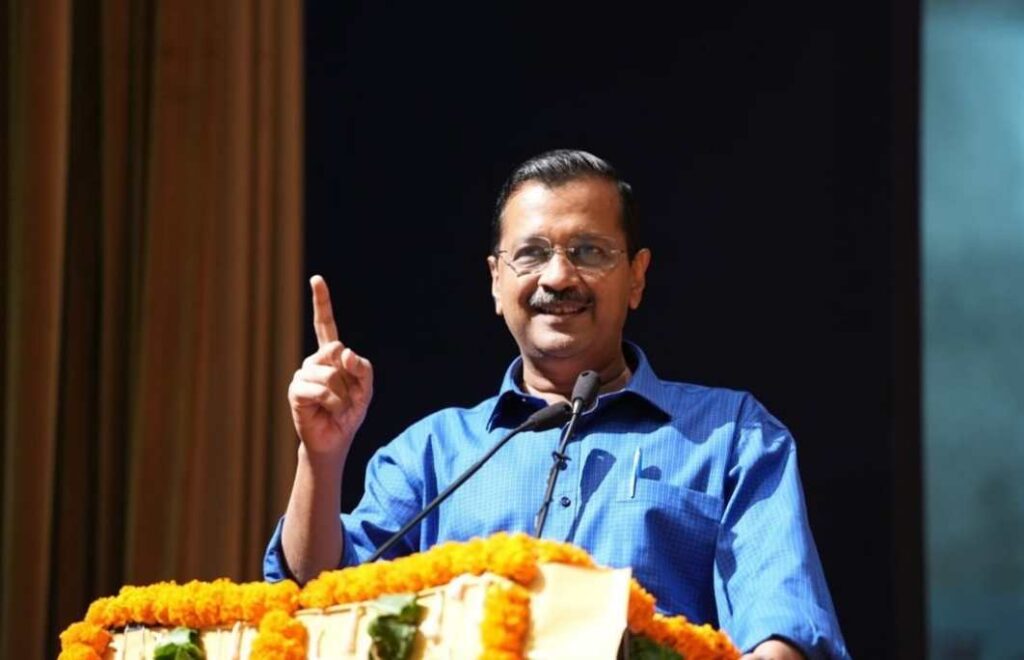Arvind Kejriwal, a leading opposition figure and Delhi’s chief minister, was detained by Enforcement Directorate, according to his party.

The recent arrest of Arvind Kejriwal, a prominent opposition politician and Delhi’s chief minister, by India’s financial crime agency has ignited a firestorm of controversy and political tension. The arrest, announced by his party, the Aam Aadmi Party (AAP), is allegedly tied to corruption allegations surrounding the city’s alcohol sales policies. Kejriwal and AAP vehemently deny any wrongdoing, dismissing the charges as politically motivated maneuvers by their opponents.
Also Read:- Sadhguru Jaggi Vasudev of Isha Foundation Undergoes Emergency Brain Surgery in Delhi
The timing of Kejriwal’s arrest, just weeks before the commencement of India’s general election, adds a layer of complexity to an already volatile political landscape. As police surrounded Kejriwal’s residence for a search conducted by the Enforcement Directorate agency, the nation’s attention shifted to the unfolding drama, underscoring the high stakes involved.
At the heart of the controversy are allegations that a policy change in 2022 regarding alcohol sales in Delhi, which terminated government control in favor of private retailers, unfairly advantaged certain parties. Kejriwal’s purported disregard for multiple summonses related to the case has only heightened the intensity of the situation, with AAP accusing the ruling Bharatiya Janata Party (BJP) of orchestrating what they describe as “dirty politics.”
AAP’s response to Kejriwal’s arrest has been swift and resolute. Dilip Pandey, a senior AAP lawmaker, minced no words in asserting that Prime Minister Narendra Modi’s government is apprehensive of Kejriwal’s influence, emphasizing their commitment to challenging both the arrest and what they perceive as unjust government policies.
However, Kejriwal’s case is not an isolated incident in India’s political landscape. Last year saw the arrest of two other AAP leaders, Sanjay Singh and Manish Sisodia, in connection with the same case, further fueling accusations of politically motivated vendettas against opposition figures.
Moreover, Rahul Gandhi, a prominent member of the opposition Congress party, faced legal troubles of his own, including a criminal libel conviction that temporarily disqualified him from parliament.
Also Read:- Former Mumbai Police Officer Pradeep Sharma Convicted in 2006 Fake Encounter Case
These events have sparked widespread concerns about the erosion of democratic principles in India. The use of state agencies for political ends, coupled with the targeting of opposition leaders through legal means, raises troubling questions about the state of democracy and the rule of law in the world’s largest democracy.
As India gears up for its general election, the arrest of Arvind Kejriwal serves as a stark reminder of the intricate web of politics and power dynamics that shape the nation’s landscape. The outcome of this saga will not only impact the fate of individual politicians but also reverberate throughout the corridors of power, influencing the trajectory of Indian democracy for years to come.
